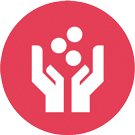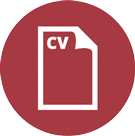
April 2015
Ariadne’s Thread is a monthly update of events, briefings and research for social change and human rights funders.
Ariadne News & Events
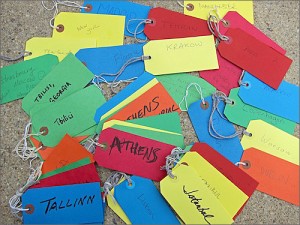 ARIADNE’S POLICY BRIEFING: At this year’s Policy Briefing, held last month in Budapest, we asked participants to guide us in where they would like the Briefing to be next year: have a look and see which cities were popular, we will take this into account when we start planning next year! Two plenary session videos from the 2015 Briefing are now available: The Closing Space for Civil Society looked at practical ways for cross-border funders to combat the problems, and The Wheel of Fortune explored how trade and investment regimes threaten to undermine rights and social justice. Notes of the sessions are also available on the 2015 Policy Briefing community. Last but not least, don’t forget to take a look at photos from the event!
ARIADNE’S POLICY BRIEFING: At this year’s Policy Briefing, held last month in Budapest, we asked participants to guide us in where they would like the Briefing to be next year: have a look and see which cities were popular, we will take this into account when we start planning next year! Two plenary session videos from the 2015 Briefing are now available: The Closing Space for Civil Society looked at practical ways for cross-border funders to combat the problems, and The Wheel of Fortune explored how trade and investment regimes threaten to undermine rights and social justice. Notes of the sessions are also available on the 2015 Policy Briefing community. Last but not least, don’t forget to take a look at photos from the event!
WORKSHOP AND WEBINARS ON THE DISABLING ENVIRONMENT FOR CIVIL SOCIETY: Ariadne, the International Human Rights Funders Group and the European Foundation Centre are jointly organising a two day Funders’ Workshop on the Disabling Environment for Civil Society on 11-12th June 2015 in Berlin. The event will take place largely in closed session with funders and civil society experts, it is open to Ariadne participants by invitation. The objective of the workshop is for funders to develop concrete strategies to address the disabling environment for civil society, not to discuss the problem. To ensure that all funders have a similar level of knowledge about the issue we will be hosting two webinars in advance of the workshop. The first will be on April 16th (register here) and the second on May 19th. The webinars are open to all members of IHRFG, Ariadne and the EFC, whether or not they are coming to the workshop. They will also be recorded. If you have any questions about the webinars, or would like an invitation to the workshop in Berlin, please e-mail lori.stanciu@ariadne-network.eu.
TELE-BRIEFING ON POST-CHARLIE HEBDO: What responses do funders have to the social crisis in France? 77% of French people think Islamophobia is increasing and 68% think anti-Semitism is growing (Odoxa Survey 27.02.2015). Racism, stigmatisation of part of the population and social inequality: French society is facing huge challenges brought to light by the terrorist attacks against Charlie Hebdo and the Casher supermarket. Which actions can we use to fight against racism and discrimination? How can we promote equality of opportunity? When and where can we help to train and include the younger generation? Do funders have a specific role to play in this context? The tele-briefing is aimed at discussing these social challenges in France. It will provide insight for funders on some current initiatives and explore the strategic role of funders. Please note the event will be held in French. 16th April, 12:00- 13:00 CET. RSVP here.
TELE-BRIEFING: THE FUNDING OF CAGE AND THE POSSIBLE IMPLICATIONS FOR GRANT-MAKERS: In recent weeks, following comments made by Asim Qureshi of Cage, about the Islamic State terrorist “Jihadi John”, the group and its funders have been subjected to intense media attention. Two of Cage’s funders have come under regulatory pressure to confirm that they will no longer fund the group, and there is real concern that the interventionist stance taken by the Charity Commission could indicate a more directive approach by the regulator which could affect the future funding of unpopular or controversial causes. This tele-briefing will take place on Wednesday April 22nd at 11.00 – 12.00 GMT and will be a closed event, for funders only. The issues discussed and the views expressed will be strictly off-the-record. If you are a funder and would like an invitation to join this event please email jenny.oppenheimer@ariadne-network.eu. Please be aware that we may not be able to accommodate everyone who expresses an interest in participating.
2015 ARIADNE FORECAST: Ariadne has issued the first ever Forecast for Social Change and Human Rights Funders. The aim is to help you and your grantees see the big picture, discover important trends for funders and to plan ahead. The publication has been put together with the input of over 90 grant-makers and philanthropy specialists as a community created resource. It includes forecasts for social change and human rights grant-making globally, at the European level and for the UK and The Netherlands. You can find out what grant-makers believe will be the big issues of 2015 and see what lies behind their thinking, and also compare trends at different levels in an easy to read chart. The Forecast is a public document available for all on the Ariadne website – please distribute it widely.
WEBINAR: HOW TO USE AND MAXIMISE THE ARIADNE PORTAL: An online tuition session about the Ariadne Portal will be held on the 15th of April 2015 at 15:00 BST. The session will last approximately one hour. Participants will come away with the ability to: use helpful shortcuts to make using the portal quicker and more efficient; find and participate in communities related to their areas of interest; post to and comment on blogs; upload documents to shared libraries; publish event notices; and access Foundation Maps, the database of social change and human rights grants. We will discuss how the portal relates to your work and how you can use it to get the most out of your online platform. To RSVP and to receive your log-in instructions for the webinar, please email kenneth.hill@ariadne-network.eu
SAVE THE DATE: ARIADNE UK GRANT SKILLS-DAY: Ariadne UK will hold its annual Grant-Skills Day and Networking Dinner on September 23rd 2015. We invite all Ariadne participants to come to either or both events. This year the Grant-Skills Day will focus on Digital Participation for Social Change and Human Rights Funders with the aim of developing the confidence and competence of funders to engage with digital technologies safely and effectively. The event will be held at the Victorian-era London Museum of Water & Steam based in a 19th century pumping station across the river from Kew. Registration opens shortly.
New Research, Articles and Judgements
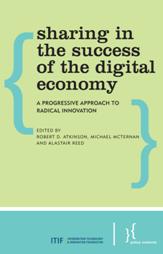 Sharing in the success of the digital economy: Policy Network (an international think tank and political network based in London) has published Sharing in the Success of the Digital Economy: A Progressive Approach to Radical Innovation, which analyses how to make the political case for the progressive power of innovation and the digital economy. As the report explains, the digitally enabled economy is unleashing a new wave of change. The economic evidence shows that this innovation –the development and adoption of new products, services, processes and business models – is vital to support rising living standards. However, the forces of ‘creative destruction’ threaten incumbent firms, jobs, and the way people work and live, creating strong incentives to oppose change. With the European commission set to publish its proposals for the digital single market in May, this collection of essays aims to explore how progressives can embrace the power and promise of innovation through ICT and the digital economy, while developing new institutions and forms of social investment to enable societies to cope with the new challenges and risks that this heralds.
Sharing in the success of the digital economy: Policy Network (an international think tank and political network based in London) has published Sharing in the Success of the Digital Economy: A Progressive Approach to Radical Innovation, which analyses how to make the political case for the progressive power of innovation and the digital economy. As the report explains, the digitally enabled economy is unleashing a new wave of change. The economic evidence shows that this innovation –the development and adoption of new products, services, processes and business models – is vital to support rising living standards. However, the forces of ‘creative destruction’ threaten incumbent firms, jobs, and the way people work and live, creating strong incentives to oppose change. With the European commission set to publish its proposals for the digital single market in May, this collection of essays aims to explore how progressives can embrace the power and promise of innovation through ICT and the digital economy, while developing new institutions and forms of social investment to enable societies to cope with the new challenges and risks that this heralds.
The economy is swell, the citizen is unwell: The Heinrich Boell Foundation’s local office has published an analysis of Turkey on the eve of its next General Election, with the tag line ‘the economy is swell, the citizen is unwell’. The publication includes articles on the global crisis in 2015 and the Turkish economy, the centenary of the Armenian genocide and the run-up to the elections, and land grabbing as a political act, among other topics. The editorial team behind this edition state that its aim is to “point to the complexity of global governance, to so-called double standards and discontent as well as opposition against this kind of a system of global governance.”
What next for EU sanctions on Russia: As a result of the annexation of Crimea and ongoing hostilities in the Donbas, the EU imposed three layers of economic and financial sanctions on Russia in 2014. European Union leaders have agreed that economic sanctions will stay in place until a Ukraine peace deal is fully implemented, however some member states have only supported this reluctantly. As Moscow lobbies for the sanctions to be lifted, some EU member states are finding themselves vulnerable to this pressure for various domestic reasons, whilst others push for a harder line. Experts from European Council on Foreign Relations (ECFR) offices in Athens, Stockholm, Dublin, London, Warsaw, Madrid, Sofia, Rome, Bratislava, Vienna and Berlin have written about the factors behind this ongoing debate.
The Jewish Case for Human Rights: René Cassin, a London-based charity working to make human rights relevant for Jewish people, has produced a new resource ‘Human Rights: Protecting. Empowering. Inspiring – The Jewish Case for Human Rights.’ The resource presents a collection of stories that detail both the Jewishness and importance of human rights, including stories involving Wimbledon champions, war heroes, Rabbis, youth movement leaders, Holocaust survivors, asylum seekers and politicians. As the authors explain, “Discrimination and persecution against Jewish people and other minorities throughout the last century was the major impetus for the development of the international human rights movement. The need for laws that transcend national boundaries and protect the vulnerable from the powerful have been reasserted time and time again. Yet, right now in the UK, human rights legislation is under threat and we believe that the Jewish community has an important stake in this debate… These stories demonstrate a chronology of Jewish experience that illustrates the importance of our human rights protections and serves as a call to action for the Jewish community“.
The EU should show resolve on Azerbaijan: International NGO Human Rights Watch has reported on the current Human Rights landscape in Azerbaijan, stating that the European Union has largely stood aside as Azerbaijan moves forcefully ahead in the “most radical crackdown on human rights in its 24 years of independence from the Soviet Union”. As HRW describes, in the past year, most of the country’s human rights leaders and other critical, independent voices have been either thrown behind bars or driven into hiding or exile. Dozens of independent groups have had their bank accounts frozen, many have been forced to close, and new, draconian legislation introduced by the government has made it all but impossible to carry out independent human rights work in the country. According to HRW, “taken together, these developments have fundamentally transformed Azerbaijan’s human rights landscape”. However, HRW suggests that the EU has an opportunity to signal a new resolve with the visit to Baku by the new commissioner for European neighbourhood policy and enlargement, Johannes Hahn, and the NGO has made various recommendations for his visit.
Blogs and Other Sites of Interest
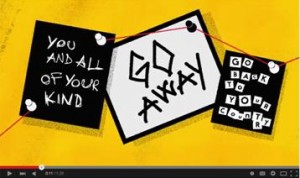 VIDEO: Hate crimes don’t discriminate: Melissa Sonnino from CEJI (A Jewish Contribution to an Inclusive Europe, and coordinators of Facing Facts), has written an article for the Open Society Foundations explaining what a hate crime is. She explains that “There’s a common misperception that hate crimes affect only members of certain groups… But the fact is, anyone can be a victim of hate-based threats, assaults, murders, desecration, or vandalism because hate crimes are motivated by both real and presumed identity. That’s why it’s up to all of us to combat this problem.” Facing Facts is a campaign aimed to raise awareness of the devastating effects of hate crimes on victims and communities—especially when those crimes go unrecognised or are systematically ignored, and for this reason they have released a video explaining what hate crimes are and how they can be stopped.
VIDEO: Hate crimes don’t discriminate: Melissa Sonnino from CEJI (A Jewish Contribution to an Inclusive Europe, and coordinators of Facing Facts), has written an article for the Open Society Foundations explaining what a hate crime is. She explains that “There’s a common misperception that hate crimes affect only members of certain groups… But the fact is, anyone can be a victim of hate-based threats, assaults, murders, desecration, or vandalism because hate crimes are motivated by both real and presumed identity. That’s why it’s up to all of us to combat this problem.” Facing Facts is a campaign aimed to raise awareness of the devastating effects of hate crimes on victims and communities—especially when those crimes go unrecognised or are systematically ignored, and for this reason they have released a video explaining what hate crimes are and how they can be stopped.
VIDEO: AIDS Philanthropy Summit: Funders Concerned About AIDS has posted a series of videos from its recent AIDS Philanthropy Summit, covering stigma, advocacy and the intersections of human rights and HIV, and lessons from its first webinar in a series on the role of philanthropy in ending AIDS in America.
VIDEO: Online social change – easy to organize, hard to win: Today, a single email can launch a worldwide movement. But as sociologist Zeynep Tufekci suggests in this TED video (TED Talks are a global set of conferences run by the private non-profit Sapling Foundation), even though online activism is easy to grow, it often doesn’t last. Why? She compares modern movements — Gezi, Ukraine, Hong Kong — to the civil rights movement of the 1960s, and uncovers a surprising benefit of organizing protest movements the way that they happened before the advent of Twitter.
VIDEO: #HACKGIRLSRIGHTS – Girls around the world use technology to address access to safe spaces: This video, co-produced by Global Fund for Women and GlobalGirl Media, shows girls in five international cities (New York – USA, Oakland – USA, Taipei – Taiwan, Trivandrum – India, and Porto Alegre – Brazil) as they #hackgirlsrights by creating innovative mobile- and web-based solutions to a critical challenge facing women and girls — access to safe spaces.
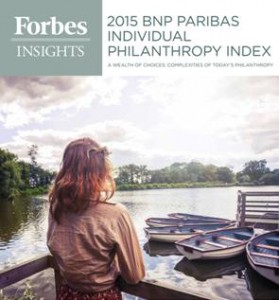 Top trends in international philanthropy: For the third year in a row, the BNP Paribas Individual Philanthropy Index, based on a survey of 400 individual philanthropists worldwide, has looked at the state of individual giving. UK newspaper The Guardian, has commented on the top trends from the index. For example, according to the survey, philanthropy is on the rise; the index, which measures the amount of giving, innovation in philanthropic approaches and promotion of causes and organisations, has shown an increase over the past year, as well as an overall upward trend over three years. Also, health is the most popular philanthropic cause worldwide; 65% of survey respondents pointed to health causes, followed by the environment (52%), education (44%) and social change, diversity and inclusion (42%).
Top trends in international philanthropy: For the third year in a row, the BNP Paribas Individual Philanthropy Index, based on a survey of 400 individual philanthropists worldwide, has looked at the state of individual giving. UK newspaper The Guardian, has commented on the top trends from the index. For example, according to the survey, philanthropy is on the rise; the index, which measures the amount of giving, innovation in philanthropic approaches and promotion of causes and organisations, has shown an increase over the past year, as well as an overall upward trend over three years. Also, health is the most popular philanthropic cause worldwide; 65% of survey respondents pointed to health causes, followed by the environment (52%), education (44%) and social change, diversity and inclusion (42%).
GrantCraft – A Simple Process for Taking on Non-Grantmaking Roles: According to Marieke Spence, a consultant writing for GrantCraft (a service of the Foundation Center which provides free resources to improve the practice of philanthropy), more and more funders are interested in taking on more catalytic roles within their communities. However, if they do not realise the potential of their non-grantmaking activities, for example convening, advocating, training or educating, then foundations and grant-makers may be leaving significant value unused and missing out on learning opportunities. Whilst many funders do recognise that they possess substantial expertise, networks and resources that can amplify the impact of their grants, they may be unsure of how to fully mobilise these resources. Marieke sets out a simple process that can help, and guides the reader through the five steps of ‘research, reflect and plan, assess, ‘build or buy’ and execute’.
After the Gold Rush: The Alternative Commission on Social Investment, an initiative set-up to investigate what’s wrong with the UK social investment market and to make practical suggestions for how the market can be made more accessible and relevant, has published a new report, ‘After the Gold Rush‘, in which it claims that the sector lacks transparency and relevance. According to the report, social investors need to be more transparent about the investments they make. The report calls for better tools for charities and social enterprises to rate their own experience of social investors, as well as a reconsideration of the role of Big Society Capital. According to the report, “While many individuals and organisations in the UK are successfully using finance to support social good, the idea of ‘social investment’ and the ‘social investment market’ are neither living up to the rhetoric of politicians and social investment leaders nor meeting the expectations of many charities and social enterprises.”
Making Ideas Move: The Stanford Social Innovation Review has produced a multipart series on strategic communications, presented in partnership with the Communications Network (a US-based nonprofit organisation which supports foundations and other nonprofits to improve lives through the power of smart communications), in which a diverse group of leaders from foundations, NGOs and research institutions share how effective communication has helped them to drive social change. Articles address the purpose and impact of strategic communications, what it takes to improve communications, how to foster a culture of communications, and other tools and approaches that organisations are using to maximise communications and make their ideas move. For example, one article looks at how Freedom to Marry (the US-based campaign for marriage equality) used communications to make the “impossible… inevitable”.
International Journal of Not-for-Profit Law: The March issue of the International Center for Not-for-Profit Law’s journal includes articles analysing funding restrictions under international law, summarising government justifications, and exploring funder responses.
Jobs and Tenders
 Programme Officer, Issues Affecting Women Programme (IAW), Oak Foundation: Oak Foundation are seeking a Programme Officer for their Issues Affecting Women Programme (IAWP). The Officer will contribute to the development of the programme’s strategic direction, including through the drafting of grant recommendations and reports to the Board, and will conduct project-level monitoring, including site visits, and the planning and supervising of evaluations. Candidates must have long-standing expertise in the non-profit sector with a focus on human rights, communication, evaluation, or corporate social responsibility, and at least 7-10 years of relevant work experience, preferably with country level experience in the global South and East. Experience in gender equality or women’s rights is also desirable. Closing date for applications: April 30th. Location: Geneva, Switzerland. More details.
Programme Officer, Issues Affecting Women Programme (IAW), Oak Foundation: Oak Foundation are seeking a Programme Officer for their Issues Affecting Women Programme (IAWP). The Officer will contribute to the development of the programme’s strategic direction, including through the drafting of grant recommendations and reports to the Board, and will conduct project-level monitoring, including site visits, and the planning and supervising of evaluations. Candidates must have long-standing expertise in the non-profit sector with a focus on human rights, communication, evaluation, or corporate social responsibility, and at least 7-10 years of relevant work experience, preferably with country level experience in the global South and East. Experience in gender equality or women’s rights is also desirable. Closing date for applications: April 30th. Location: Geneva, Switzerland. More details.
Grants Manager – Richard Cloudesley’s Charity: Richard Cloudesley’s Charity gives grants to individuals in need, and to organisations working with people who are poor and in ill health (including mental ill health and disability); it also makes charitable funds available for the benefit of 21 Anglican Churches in Islington. The Charity is now looking for an experienced Grants Manager who is able to develop and implement the Charity’s grant-making programmes, foster working relationships with a wide range of partner agencies, and deputise for the Director as required. Candidates must have experience of grant programme management; knowledge of current welfare reform and/or health policy would also be desirable. Closing date for applications: 9.00am on Wednesday 22nd April. Location: London (part-time, 30 hours per week). More details.
Grants Evaluation and Monitoring Officer – European Endowment for Democracy (EED): The European Endowment for Democracy are recruiting for a Grants Evaluation and Monitoring Officer. Responsibilities will include
grant-management and supporting EED beneficiaries and EED operations, for example, administering and monitoring the operations of the EED grant-making programme, and providing strategic guidance on the management, evaluation and monitoring of EED grants. Candidates must have at least 5 years of full-time professional experience in democracy-related projects and programmes from the civil society perspective as well as in EU relations and policy advocacy, and a demonstrated track record in grant-making and/or administering financial and contractual reports. Closing date for applications: 16th April, 12.00 midnight (Brussels time). Location: Brussels. More details.
Programme Coordinator – The German Marshall Fund of the United States: The Warsaw office of the German Marshall Fund of the United States (GMF) is seeking a Programme Coordinator to support office programming. The Coordinator will report to the Warsaw Office Director and provide support in a variety of convening and research activities that foster transatlantic cooperation related to the region, including identifying, initiating and pursuing programming opportunities on issues concerning transatlantic security and defense policy in the regional context of Poland and Central Europe. Candidates must have 2 to 5 years of relevant work experience in the policy community, government, or media. Closing date for applications: until filled. Location: Warsaw. More details.
Public Meetings
ARUSHA
June 29th – July 3rd
African Grantmakers Network (AGN) 3rd Biennial Assembly: “Philanthropy in Africa 2015: People, Policy and Practice”: The previously postponed 2014 African Grantmakers Network (AGN) 3rd Biennial Assembly will now be held in Arusha, Tanzania on the 1st – 3rd July 2015, and will be hosted by the African Women’s Development Fund (AWDF) and The Foundation for Civil Society (FCS). Leading thinkers in philanthropy will join delegates in discussing the growth of African economies through philanthropy development. More details here.
BRUSSELS
March 9th – April 23rd
Cartoon Art for World Peace Exhibition: Using black humour and satire – ‘Cartoons for Peace’ is a collection of political cartoons created over the past three decades from numerous countries to convey the absurdity of war and conflict through the eyes of award winning cartoonists. This exhibition invites you into the minds and emotions of artists from around the world whose drawings were selected as part of an international competition that has been run for 32 years by the Aydin Doğan Foundation from Turkey. The exhibition will run from the 9th of March to the 23rd of April. Location: Philanthropy House, Brussels.
Save the date: European Environmental Funders Group 5th Annual meeting: The 5th annual meeting of this network will bring funders together with diverse stakeholders (NGOs, policy-makers, think-tanks, business, and others) to discuss systemic issues affecting the environmental agenda. This is an opportunity for networking, intelligence sharing, and strategic reflection on funding opportunities and start-ups. The event will take place on the 17th to the 18th of November, in Brussels. More details will follow soon.
ISTANBUL
September 28th – October 2nd
Save the date: Grantmakers East Forum 2015: This year is the 20th anniversary of the Grantmakers East Forum, which is due to take place from the 30th of September to the 2nd of October.
LONDON
April 13th – April 17th
Human Rights in the UK After the 2015 General Election – Planning for the Future: You are cordially invited to participate in a non-attributable discussion regarding potential scenarios for the future of the UK’s human rights protections following the 2015 General Election. The session will be an opportunity to discuss future scenarios analysis commissioned by the Thomas Paine Initiative, to consider its implications for action and to share and discuss plans. 13:00-16:15 BST, 14th April 2015. Location: NCVO, London. Please contact Sarah Pugh to reserve a space.
Step Up – Launch event of new funding programme to support work progression amongst low-paid workers: Research shows that around 570,000 Londoners have been stuck in low pay for at least a year and the number in low pay has increased significantly. However, there has been little focus on funding programmes that help people to escape low pay. Building on a number of events examining this issue, Trust for London and Walcot Foundation are launching a joint funding programme to pilot initiatives that support people to progress to better paid, more secure employment and develop their careers. The launch event will give more details about the funding programme (aims, criteria, application process, deadlines etc.), an opportunity to ask questions about the initiative and to discuss your ideas with the funders. 14:00-15.30 BST, 16th of April. Location: Council Chamber, Lambeth Town Hall. Register here.
April 20th – April 24th
RightsInfo Launch Party: RightsInfo, directed by Adam Wagner, author of the UK Human Rights Blog, is a new organisation which will use social media to radically change the way we communicate about human rights. The organisation and campaign will launch on Tuesday 21st April 2015, 18:30 BST (for 19:00 start) at the Free Word Centre, 60 Farringdon Road, London, EC1R 3GA. If you would like attend, please RSVP to events@rightsinfo.org with your name as the subject title. There is limited space at the event so please RSVP.
May 18th – May 22nd
Justice matters for women: Time for action: Following a call to action to ’empower women, resist injustice and transform lives’, Women in Prison and the Centre for Criminal Justice Studies are hosting a one-day event on Wednesday the 20th of May to turn shared concerns into collective action to challenge criminal justice failure and build social justice alternatives. Sessions will cover: setting the context; where have we been and where are we going; where do we want to be; what can we learn from other campaigns; how can we work together to challenge injustice? Location: Human Rights Action Centre, Amnesty International, London. Register here.
June 8th – June 12th
Rhetoric and Reality: From Magna Carta to human rights today: The Magna Carta has come to stand for the rule of law, curbs on executive power and the freedom to enjoy basic liberties. When the Universal Declaration of Human Rights was adopted by the United Nations in 1948, it was heralded as ‘a Magna Carta for all human-kind’. Yet in the year in which this medieval Charter’s 800th birthday is widely celebrated, the future of the UK’s commitment to international human rights standards is in doubt. In A Magna Carta for all Humanity: homing in on human rights, Professor Francesca Klug invites us to consider what is distinctive about the ethic and practice of universal human rights. This event celebrates the launch of this publication, and brings together Francesca Klug and Shami Chakrabarti in a public conversation, chaired by Jane Gordon. Wednesday 10th of June 2015, 18.30-20:00 BST. Location: Sheikh Zayed Theatre, New Academic Building, LSE, London
MILAN
May 18th – May 22nd
26th EFC Annual General Assembly and Conference: “Philanthropy: Visions and Energy for Change”: The European Foundation Centre will convene its 26th Annual General Assembly and Conference in Milan. By choosing Milan with its coinciding EXPO 2015, EFC plans to create synergies between its flagship conference and the numerous events, organisations and people that EXPO 2015 will attract to Milan. Closely paralleling the EXPO theme of “Feeding the Planet, Energy for Life”, the EFC conference in 2015, entitled “Philanthropy: Visions and Energy for Change”, will embrace the challenge of the sustainable development of the planet and also focus on youth, corporate engagement in social equality and community resilience. 20th – 22nd of May. Location: Milan. Read more here.
PARIS
May 4th – May 8th
Séminaire politique antidiscriminatoires/Seminar on Anti-Discrimination Policy: Mayanthi Fernando, an anthropologist based at the University of California, Santa Cruz, will present his book The Republic Unsettled: Muslim French and the Contradictions of Secularism, in discussion with Sylvie Taussig (Literary Studies, Centre Jean Pépin and IRENE group). The seminar will take place on the 4th of May, from 17:00-19:00 CST, at CERI, 56 rue Jacob, Salle Jean Monnet (RDC). Contact gwenaele.calves@free.fr or daniel.sabbagh@sciencespo.fr to register.
NEW YORK
July 13th – July 17th
Save the date: IHRFG’s 2015 New York Institute: The International Human Rights Funders Group annual New York institute and conference will take place this year from the 13th – 15th of July, at New York University’s School of Law, hosted by the Center for Human Rights and Global Justice.
ROME
November 9th – November 13th
Save the date: 2015 European Pro Bono Forum: The European Pro Bono Forum provides an international perspective on pro bono practice in Europe. By bringing together a growing and influential community of lawyers, individuals from the NGO sector, law professors and students that recognise the urgency of developing pro bono work, PILnet’s European Pro Bono Forum offers a setting where participants can explore how they can best collaborate to address critical social issues. 11th – 13th November 2015. Location: NH Collection Roma Vittorio Veneto, Rome. More details here.
THE HAGUE
April 12th – May 5th
The Hague Freedom Weeks: The Hague Freedom Weeks will take place from the 12th of April to the 5th of May, and will be made up of a series of events highlighting freedom, peace, democracy, justice and the international legal order. There will be more than 50 activities in the form of debates, excursions, performances, films, readings and concerts; for example, there will be an exhibition on ‘Stories of Change – Beyond the ‘Arab Spring’, whereby World Press Photo, the Ministry of Foreign Affairs and Humanity House will offer a unique glimpse into daily life in five North African countries: Algeria, Egypt, Libya, Morocco and Tunisia.
Ariadne is supported by Adessium Foundation, The Atlantic Philanthropies, Barrow Cadbury Trust, Ford Foundation, Oak Foundation, Open Society Foundations, Sigrid Rausing Trust and Zennstrom Philanthropies.
Ariadne is also supported by voluntary contributions from its participants.





